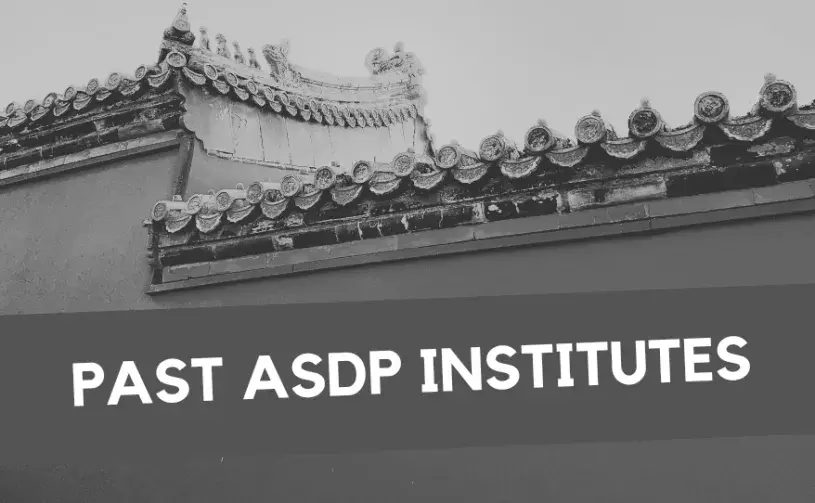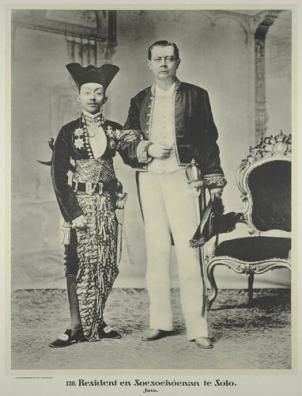Error message

Institute Dates: June 10 - July 5, 2019
Location: East-West Center, Honolulu, Hawai‘i
Project Co-Directors: Dr. Peter D. Hershock
(East-West Center),
Dr. Barbara Watson Andaya
(University of Hawai‘i at Mānoa)
Application Deadline: March 1, 2019 (Applicants will be notified on March 29, 2019)
This multidisciplinary program will offer four weeks of context-rich engagement with the multiple ways in which Southeast Asian societies responded to colonial presences and how the legacies of these experiences shaped subsequent efforts to forge national identities, envision independent political futures, and imagine new relationships between the state and its citizens. By offering an in-depth interaction with key traditions, practices, and primary texts, Colonial Experiences and Their Legacies in Southeast Asia will enable educators from community colleges, liberal arts colleges and undergraduate-serving universities to develop curricular materials for a wide range of humanities and social science courses, including history, religion, philosophy, anthropology, political science, art history and literature. Applicants accepted into the program will receive a $3300 stipend to help defray the costs of participation.

Moving chronologically from the late-19th century to the post-independence period, the institute program will foreground the key themes of globalization and cultural pluralism through both broad overviews and case studies of specific Southeast Asian countries. Keeping the undergraduate classroom in mind, the program will provide a model for exploring the historical roots of colonialism’s diverse social, political, economic and cultural ramifications, and for thinking critically about the ways in which postcolonial states engage contemporary globalization processes. Presenting colonialism through Southeast Asian experiences will help dispel many common misconceptions about the passivity of colonized peoples, while at the same time fostering a more nuanced and critical engagement with the often contradictory motivations of colonizers.
Colonial Experiences and Their Legacies in Southeast Asia has been made possible in part by a major grant from the National Endowment for the Humanities: Exploring the human endeavor.

Institute Dates: June 10 - July 5, 2019
Location: East-West Center, Honolulu, Hawai‘i
Project Co-Directors: Dr. Peter D. Hershock
(East-West Center),
Dr. Barbara Watson Andaya
(University of Hawai‘i at Mānoa)
Application Deadline: March 1, 2019 (Applicants will be notified on March 29, 2019)
This multidisciplinary program will offer four weeks of context-rich engagement with the multiple ways in which Southeast Asian societies responded to colonial presences and how the legacies of these experiences shaped subsequent efforts to forge national identities, envision independent political futures, and imagine new relationships between the state and its citizens. By offering an in-depth interaction with key traditions, practices, and primary texts, Colonial Experiences and Their Legacies in Southeast Asia will enable educators from community colleges, liberal arts colleges and undergraduate-serving universities to develop curricular materials for a wide range of humanities and social science courses, including history, religion, philosophy, anthropology, political science, art history and literature. Applicants accepted into the program will receive a $3300 stipend to help defray the costs of participation.

Moving chronologically from the late-19th century to the post-independence period, the institute program will foreground the key themes of globalization and cultural pluralism through both broad overviews and case studies of specific Southeast Asian countries. Keeping the undergraduate classroom in mind, the program will provide a model for exploring the historical roots of colonialism’s diverse social, political, economic and cultural ramifications, and for thinking critically about the ways in which postcolonial states engage contemporary globalization processes. Presenting colonialism through Southeast Asian experiences will help dispel many common misconceptions about the passivity of colonized peoples, while at the same time fostering a more nuanced and critical engagement with the often contradictory motivations of colonizers.
Colonial Experiences and Their Legacies in Southeast Asia has been made possible in part by a major grant from the National Endowment for the Humanities: Exploring the human endeavor.


